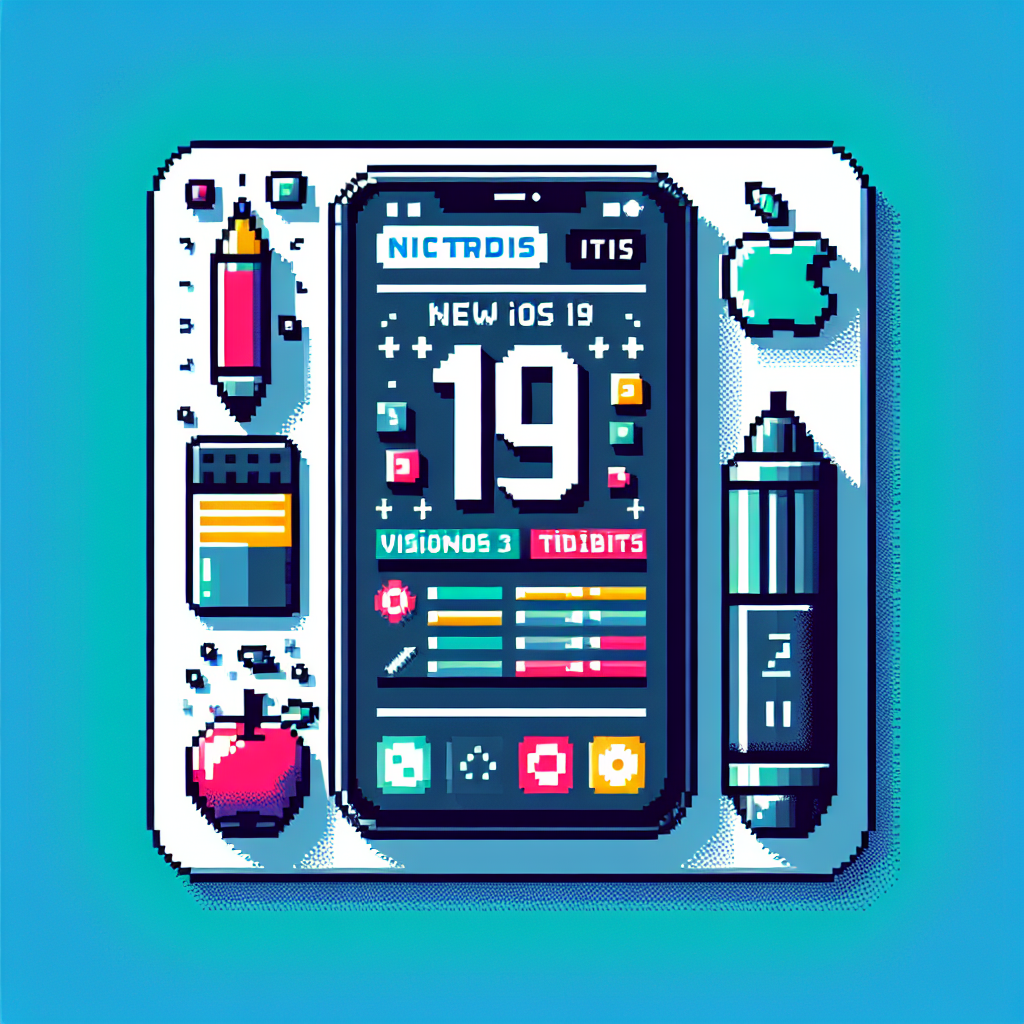New iOS 19 and visionOS 3 Tidbits Revealed - MacRumors | Analysis by Brian Moineau
**Exploring the Future: Sneak Peeks into iOS 19 and visionOS 3**
As the tech world eagerly anticipates Apple's next big software unveilings, some juicy tidbits about iOS 19 and visionOS 3 have started to trickle out, courtesy of MacRumors. With about three months to go before the official release, these little leaks are like the aroma of freshly baked cookies wafting through a house, promising something delicious just around the corner.
**iOS 19: The Evolution Continues**
Let's start with iOS 19. While the leaks don't reveal a complete overhaul, we're looking at the kind of subtle yet impactful changes that Apple has become known for over the years. Remember when iOS 14 introduced widgets to the home screen? It was a seemingly small addition that fundamentally changed how iPhone users interacted with their devices. We're expecting iOS 19 to follow in this tradition, potentially offering enhancements that make our digital lives not just easier, but maybe even a little more fun.
One whisper is about enhanced AI capabilities. With the rise of AI tools like ChatGPT and Google's Bard, it wouldn't be surprising to see Apple's own AI integration take a leap. Imagine Siri finally understanding your commands with the precision of a seasoned butler, rather than the occasional confusion of a novice intern.
**visionOS 3: The Next Dimension**
On the other hand, visionOS 3 is drawing attention for its potential to redefine our interaction with augmented reality (AR). Apple's venture into AR has been methodical, but with the competitive landscape heating up—thanks to efforts from Meta's Quest series and Microsoft's HoloLens—visionOS 3 could be Apple's next big push into making AR as mainstream as the iPhone itself.
Rumors suggest improvements in AR gaming experiences, which could attract not only gamers but also educators and professionals looking to leverage immersive tech for training and development. There's also talk about a more seamless integration between Apple's AR devices and the rest of their ecosystem. Imagine starting a project on your iPad, continuing it on your Mac, and then visualizing it in 3D through your AR headset.
**Connecting the Dots in the Tech World**
These developments in iOS and visionOS come at a time when technology is rapidly integrating into every facet of our lives. For instance, the automotive industry is slowly but surely embracing AR, with companies like Tesla and BMW exploring AR dashboards. Apple's advancements could potentially influence these sectors, making your next car as smart as your phone.
Moreover, as we see countries worldwide debating data privacy and digital security, Apple's updates are likely to reflect their ongoing commitment to user privacy—a topic they've championed in recent years. With laws like the European Union's General Data Protection Regulation (GDPR) influencing tech giants, Apple might introduce new features that enhance user control over personal data.
**Final Thoughts**
As we inch closer to the official unveiling of iOS 19 and visionOS 3, it's clear that Apple is not resting on its laurels. These updates hint at a future where our digital and physical worlds blend more seamlessly than ever before. While we wait with bated breath, one thing is certain: Apple's next moves will continue to shape the landscape of tech, influencing how we work, play, and live. So, keep your devices charged and your curiosity piqued—exciting times are ahead!
Read more about AI in Business

